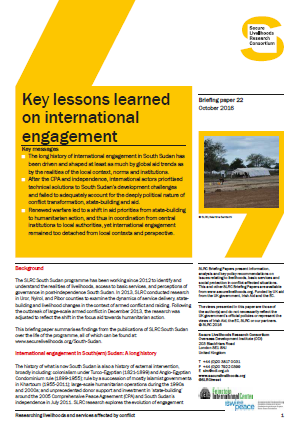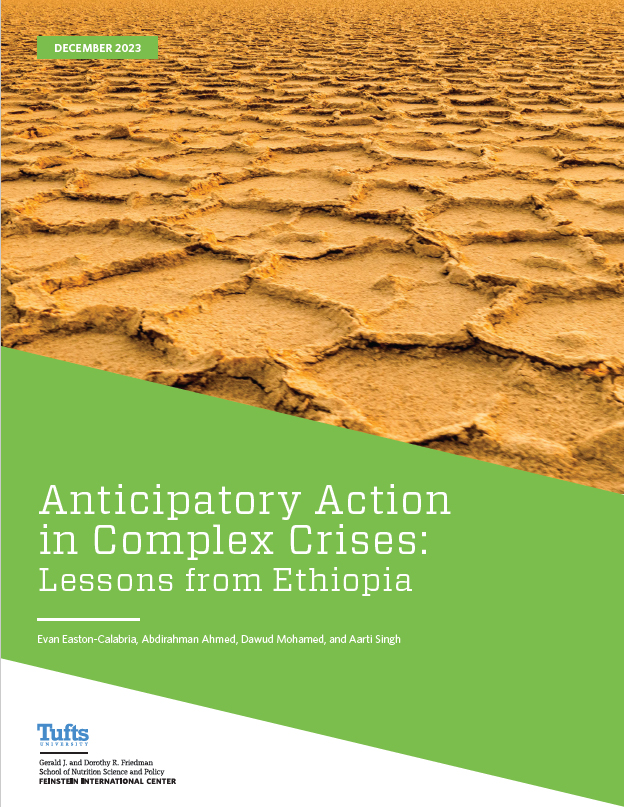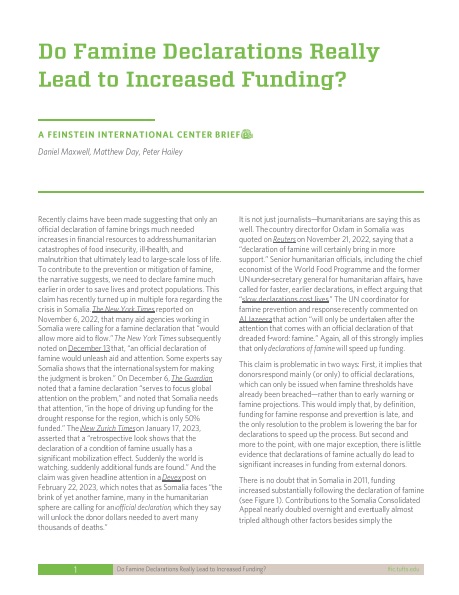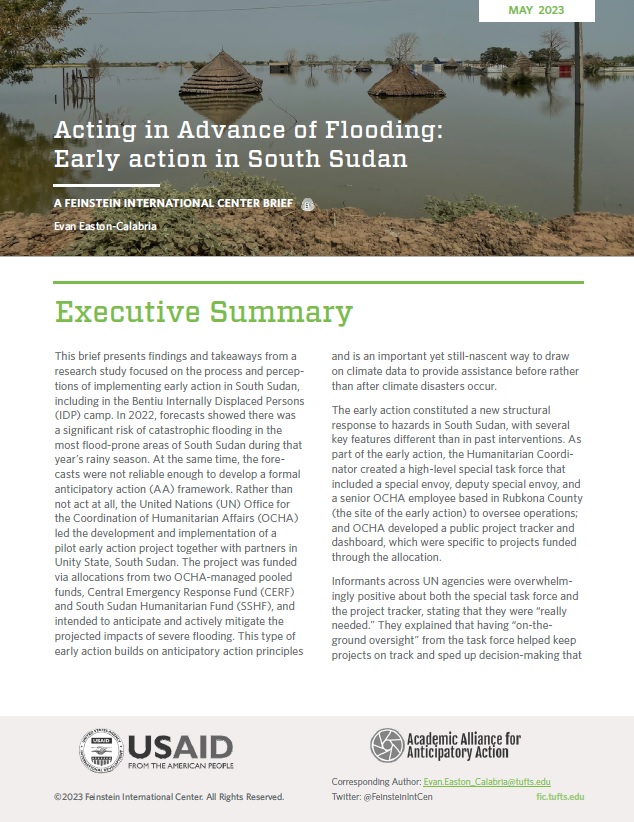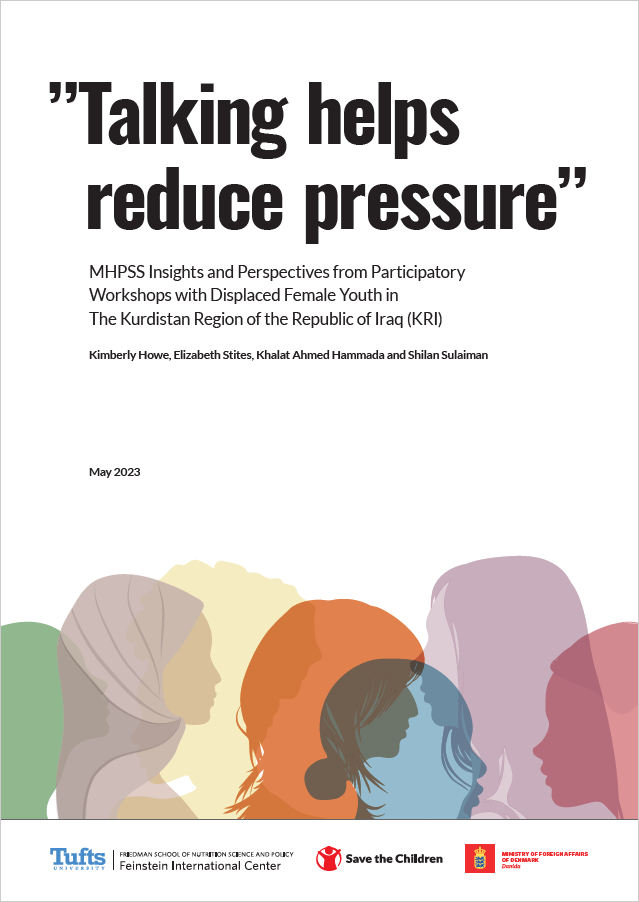This briefing paper summarizes shifts in international engagement in South Sudan from humanitarian aid to development and institution-building, and then back again to crisis response.
In the wake of South Sudan’s Comprehensive Peace Agreement in 2005, optimism abounded that investment in state-building would produce numerous benefits including peace, stability, growth, and economic opportunities. But such optimism proved to be unfounded. This paper analyzes why current aid frameworks have been mostly unsuccessful in their efforts to promote sustainable institutions and peace in South Sudan. The central argument is that aid actors largely failed because they applied technical solutions to political problems. What is needed is a rethink in approaches, modalities, and time frames, and better use of contextual and political analysis, in order to avoid similar failures in the future.
The findings emerge from the recent report, Trajectories of international engagement with state and local actors: Evidence from South Sudan, and other Secure Livelihoods Research Consortium (SLRC) South Sudan research over the life of the program.
The SLRC is a six-year, eight-country research study, led by the Overseas Development Institute (ODI) in London. SLRC investigates livelihoods, access to basic services, and social protection in fragile and conflict-affected situations. The research is funded by the UK Department for International Development (DfID), Irish Aid, and the European Community (EC). The Feinstein International Center leads SLRC research in South Sudan and Uganda in addition to its participation in the Sierra Leone research.

